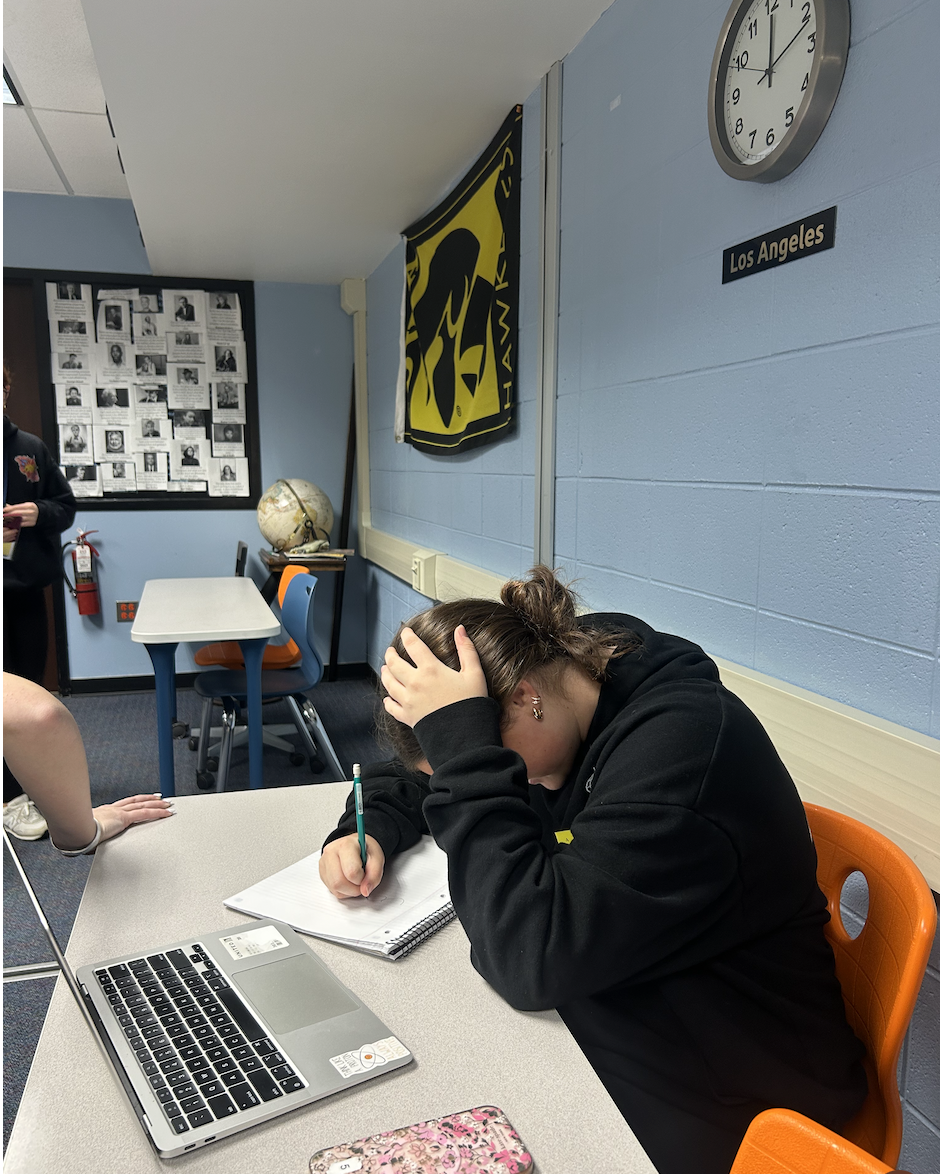Whether they arrived nervous, tired, prepared, or even excited, the students who came to school last week to take their exams would soon share a common experience: They wouldn’t be taking the ACT.
Proctors began instructing students in their rooms how to log onto the testing website, TestNav, around 8:30 a.m. Almost immediately, issues arose: students struggled to access TestNav due to their own computer issues, and proctors were unable to properly administer the test to their students.
“On the proctor’s end, the dashboard to run the test wasn’t loading properly…They couldn’t unlock tests for students, so the place where it got stalled was the students logging in, since the test wasn’t there or came up intermittently,” EdTech Laura Grigg said. “They would unlock the test for certain students, but other students became locked out. It was just like whack-a-mole.”
The ACT was not able to function due to too many students logging on to take the test at the same time. The technology was overwhelmed by the influx of students.
“What we found out after the fact was that ACT’s servers were not functioning properly…by around 10:30 am, the ACT made a release that said, ‘We think it’s working.’ Think. We weren’t confident with it,” Assistant Principal Frank Lesniak said.
In some rooms, students were able to access the test and begin it. However, the test did not function properly on the students’ end.
“You had some students taking the test, and it would bump from question one, two, three, down to five, six, seven, and skip a whole question,” EdTech Jimmy Juliano said.
Students who were able to begin the test were initially frustrated that some testing tools on their devices did not work. They were even more upset once they learned that they wasted their efforts on a cancelled test.
“The top corner of everyone’s screen is supposed to have a timer going down, and mine didn’t have that. Also, part of my 504 allows me to pause the test, but it wouldn’t let me do that,” said junior Charlotte McEvoy. “I finished both the English and the math sections, and obviously I tried hard on them because it was a real ACT. I didn’t know that no one else had been able to take it, so I was kind of upset that my score was gonna be voided.”
Technology issues came as a result of the State of Illinois’ decision to have the ACT taken digitally this year. Many students and parents alike wondered why the school did not opt to take a paper test or have paper tests as backups in case technology issues arose. Assessment and Resource Coordinator Mrs. Donna La Vitola says that it wasn’t an option.
“Unless you have a student with a very specific accommodation—it has to be a really physical reason why they can’t take a digital exam—they don’t even provide paper,” Mrs. La Vitola said.
When the proctors announced to juniors around 9:15 a.m. that there was a possibility students would not be taking the exam that day, there was a mix of emotions. Despite the initial clapping from students, some were upset that the test they had studied for weeks or months had been canceled.
“I was really disappointed because I felt really prepared for the test and had done a lot of studying and preparing up to that point. When the test got canceled, I guess I was kind of disappointed I couldn’t just get it over with and show what I could do,” junior Burke Konz said.
On the contrary, other students were overjoyed at the prospect of not taking the test that day.
“I was relieved because I felt that after that long wait and talking to people, I wouldn’t do as well as I would’ve when I first walked in. I knew that if I took it after that long wait, I would not be happy with my score,” junior Elizabeth Specketer said.

The school felt it was the right decision to send students home at 10:15 a.m. once the test showed no signs of properly functioning after three hours of waiting.
“Students would have to sit here for four, five, or six hours; also, if kids have extended time and things like that, then they would be here all day. Students were hungry, they were off-kilter, and not in the mindset,” La Vitola said. “There were a lot of issues with continuing the test with a lot of unanswered questions, so that’s why we made that decision [to send students home].”
In light of these issues, the test needed to be rescheduled so junior students could fulfill graduation requirements for the State of Illinois.
“The ACT met with the Illinois State Board of Education and gave us three options: we could stay in the same two-week testing window, or take the exam in the next window. We could restart the exam from scratch, or we could let students pick up where they left off,” Lesniak said.
The school decided to have students take the test next Tuesday. All testing groups and schedules remain the same.
“We didn’t feel good about the option to pick up where we left off because we had students whose tests weren’t working properly during their exams, so we made a decision to restart the exam,” said Lesniak. “The issue with moving it out towards the third test window is that we didn’t feel good about AP exams starting May 5th. Kids also did stuff to prepare for the April 8th ACT, so we wanted to respect that and do the exam as close to that date as we could.”
Going into the ACT on Tuesday, students are encouraged to arrive at the school no later than 7:45 a.m. with a fully charged device. Following the test, students are exempt from the rest of the school day and are allowed to return home.
“All we could think about was how hard this is for the students to go in thinking that you’re doing the test, especially for juniors, because this test is a really big deal,” said Grigg. “But all the students were so fabulous and flexible following the troubles!”
















